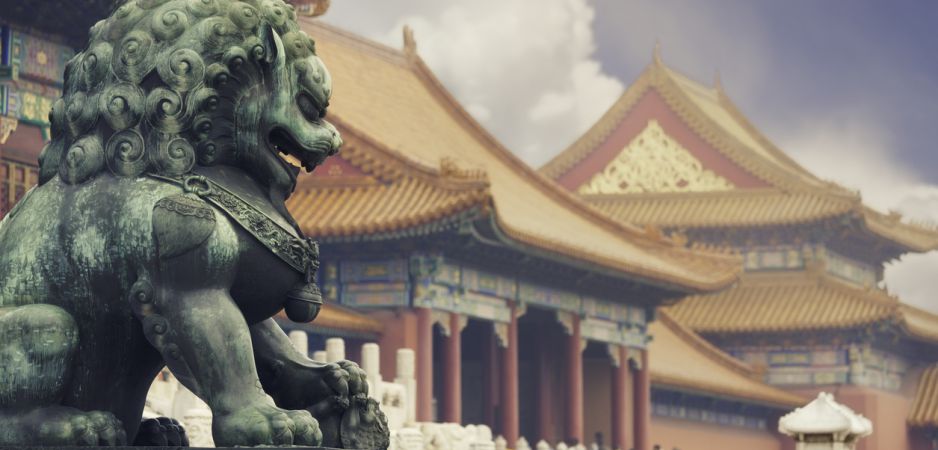President Trump’s China policy cannot be based on deal making alone.
Despite all the anti-Chinese remarks he made, Donald Trump was a surprising hero among Chinese nationalists during the presidential campaign. The former reality TV star drew his support from Chinese netizens either privately sharing his loathing for self-serving elitists (China has plenty of them) or excited by the prospects of the oafish Trump speeding up American decline and Chinese ascendency.
These fans were in for a nasty shock when the president-elect tweeted that he had accepted a phone call of congratulations from Taiwanese President Tsai Yingwen—a figure of contempt for Chinese nationalists. The deceptively innocent exchange marked the first time in almost four decades that an American president (or soon to be president) had openly communicated with a leader of the island-state.
To make matters worse, Trump referred to Tsai on equal terms as president, thus directly contradicting the Beijing-invented narrative of Taiwan as a breakaway province from the Chinese mainland, rather than a de facto independent state with its own leader.
One China Policy
Days later, he hinted at a possible end to the One China policy, making the assertion that the United States was not necessarily bound to such an agreement. Under this policy, both Taipei and Beijing make claim to the title of China (Taiwan is officially the Republic of China), but agree that there is only “one China”—in an abstract sense if not a unified nation-state.
Beyond the relationship of the two Chinas, the policy means that no country can hold official relations with both the governments of Taipei and Beijing. For its part, the US gives diplomatic recognition to Beijing but still retains unofficial ties with Taipei.
If Trump steers US policy to treating Taiwan more like an independent state, it undermines the One China principle and by extension the Chinese Communist Party’s (CCP) decades-old claim to the island. Feeling its sovereign right over Taipei under threat, Beijing will retaliate.
In fact, on December 15, China captured a US Navy drone, possibly to send Trump a warning message and flex its muscles in the South China Sea. Even before stepping into office, Trump has shown his potential to damage stability in East Asia.
Which makes the threats posed after Trump enters the White House all the more serious. If he chooses to further provoke China after his inauguration in January 2017, it could easily lead to a cycle of escalation in an already volatile region. Besides Taiwan, much of East and Southeast Asia (backed by the US) hold competing claims to territory with China.
It’s not clear whether Trump’s phone call with Tsai was an intentional plot to undermine Beijing or a result of his ignorance to the sensitivities within East Asian international politics. Given that he is a president-elect who rejects Central Intelligence Agency briefings, it was likely the latter. What kind of diplomatic crisis might he fall into next when dealing with, say, the South China Sea dispute?
Deal or no deal
Trump should take a step back before nearing the brink with China. Besides, this diplomatic faux-pas should not be interpreted as a sign of his suddenly principled approach to world politics. Trump is right to stand up for Taiwan. But he is likely doing so for the wrong reasons.
Unlike his predecessors, Trump has shown little concern about US-led stability or democracy in the region. Rather, the protectionist president-elect wants to cut a deal with China over trade for the security of white-collar American jobs. In his official statement, Trump said: “I don’t know why we have to be bound by a ‘one China policy’ unless we make a deal with China having to do with other things, including trade.”
Foreign policy is, of course, about making deals—a skill that Trump likes to remind people he excels at. But US policy needs to be underpinned by principles and a great strategy in order to work. Simply making deals risks reducing allies like Taiwan down to bargaining chips that can be tossed away when the price is right.
 It is especially concerning when considering that no deal can be struck with China in Taiwan’s favor. Beijing does not consider Taiwan’s status up for negotiation—unless the outcome is bringing Taipei under CCP rule.
It is especially concerning when considering that no deal can be struck with China in Taiwan’s favor. Beijing does not consider Taiwan’s status up for negotiation—unless the outcome is bringing Taipei under CCP rule.
That would give Trump’s Chinese fans something to cheer about.
The views expressed in this article are the author’s own and do not necessarily reflect Fair Observer’s editorial policy.
Photo Credit: Lord Runar
Support Fair Observer
We rely on your support for our independence, diversity and quality.
For more than 10 years, Fair Observer has been free, fair and independent. No billionaire owns us, no advertisers control us. We are a reader-supported nonprofit. Unlike many other publications, we keep our content free for readers regardless of where they live or whether they can afford to pay. We have no paywalls and no ads.
In the post-truth era of fake news, echo chambers and filter bubbles, we publish a plurality of perspectives from around the world. Anyone can publish with us, but everyone goes through a rigorous editorial process. So, you get fact-checked, well-reasoned content instead of noise.
We publish 2,500+ voices from 90+ countries. We also conduct education and training programs
on subjects ranging from digital media and journalism to writing and critical thinking. This
doesn’t come cheap. Servers, editors, trainers and web developers cost
money.
Please consider supporting us on a regular basis as a recurring donor or a
sustaining member.
Will you support FO’s journalism?
We rely on your support for our independence, diversity and quality.






